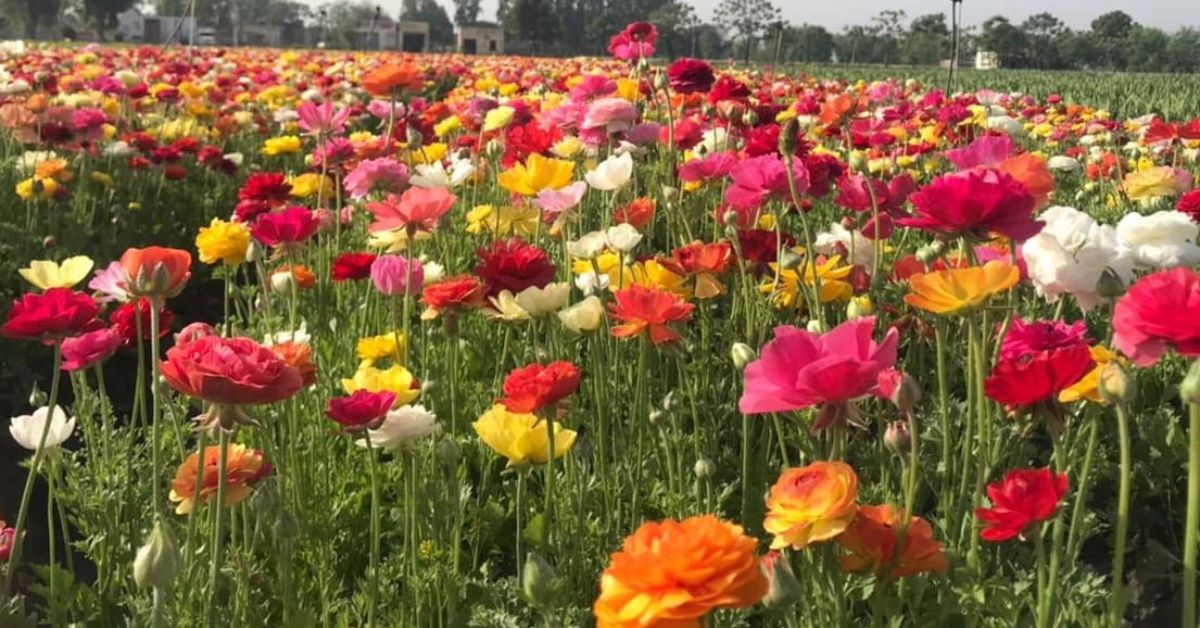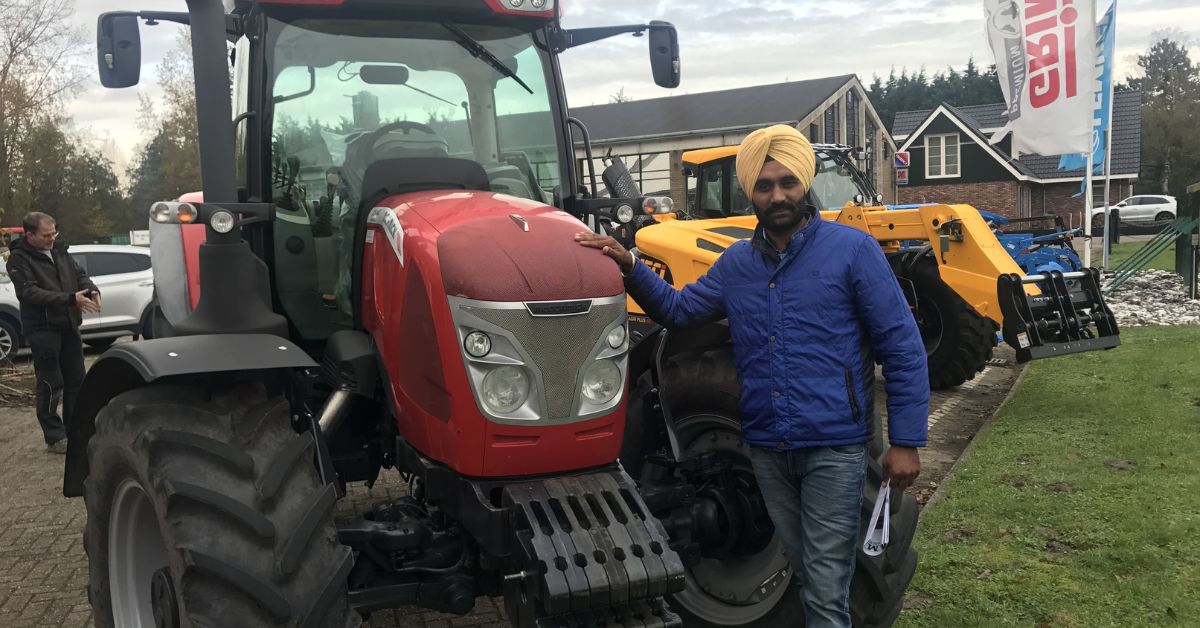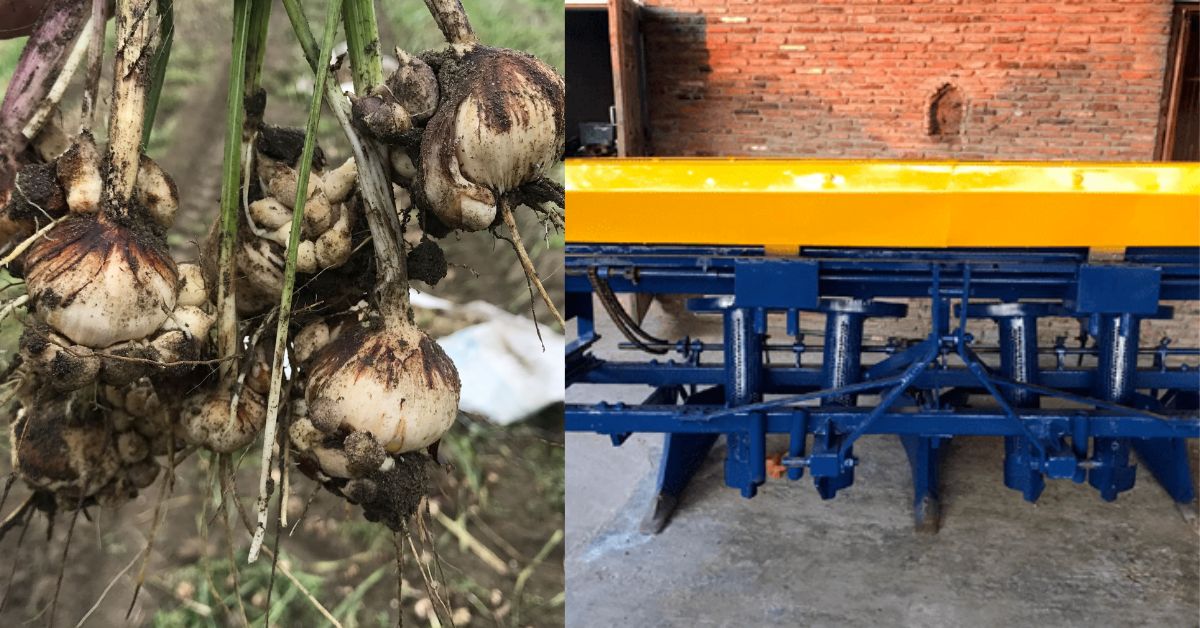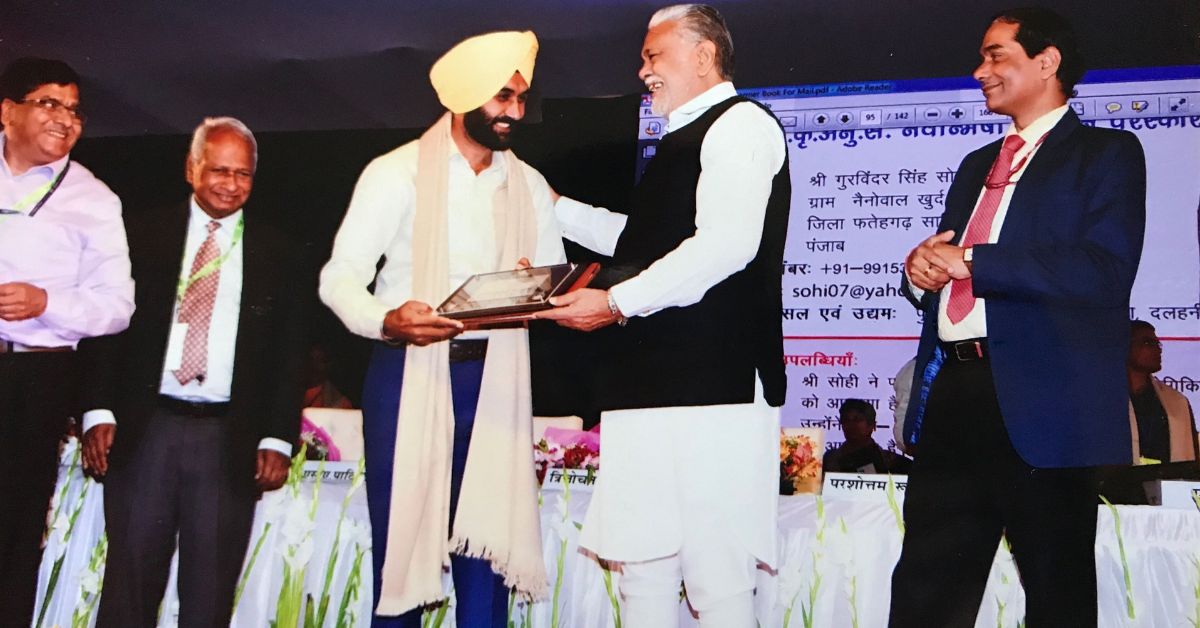Gurwinder Singh Sohi, who grew up around wheat fields in Punjab, decided in 2008 to harness the region’s favourable climate for the benefit of the farmers by switching from wheat farming to floriculture.
“For generations, my family has cultivated wheat and rice. I’ve noticed that despite the hard work farmers put into their fields day and night, they struggle to earn a decent income from it. In contrast, floriculture can yield two to three times the income compared to traditional wheat farming,” the 45-year-old tells The Better India.
“Besides, Punjab’s climate is ideal for growing most crops. The sandy loam soil and water with a pH of 7–7.5 are beneficial for flower cultivation. That’s why I chose flower farming over wheat, becoming the first farmer in my district [Fatehgarh Sahib] to do so,” he adds.
Today, he grows 40 varieties of exotic flowers — including California poppy, gladiolus, calendula, alyssum, chrysanthemum, daisy, delphinium, lupin, and salvia — on 22 acres of land in his village Nanowal. He produces around 10 tonnes of flowers in a five-month season, earning an income of Rs 1 lakh per acre.

Failed at everything to succeed in one
While most of his cousins, including his sister, moved to countries like the US and Canada in search of jobs, Gurwinder’s attachment to his village only grew. Without any aspirations to settle for a corporate job, he discontinued education after Class 12. “I never had any inclination towards higher studies. But I wanted to be accomplished and establish an identity for myself while living in the village,” he shares.
After completing Class 12 in 1993, he did several odd jobs from being a salesperson, a tea leaves trader, and a mushroom and poultry farmer to selling sweets and customising swanky jeeps. “I failed in all these professions as I lacked enthusiasm and was unable to enjoy the work,” he says.
Fifteen years later, in 2008, his life took a turning point when he started flower farming as his profession. He found out from a friend that the Punjab Horticulture Department was offering subsidised seeds of Holland gladiolus flowers.
“I decided to give it a try. The department gave me 10,000 bulbs for free, but I needed land to grow the crop, so I sought help from my father. When I informed him about my new venture, he got upset and angry because he thought I was not serious about any work, often quitting jobs after two to three years,” he recalls.

Nevertheless, Gurwinder’s father allowed him to experiment on two kanals (about 0.25 acres) of land. So Gurwinder planted the bulbs, and after 90 days, they started to bloom. He sold the first batch in the local markets and earned around Rs 3 per spike.
The Holland gladiolus flowers are one of the most widely used ornamental flowers across the world. With a longer shelf-life of seven days, these flowers are an economical agri-product for farmers. Hence, encouraged by the successful experiment and potential returns, he expanded the area under flower cultivation to one acre the next year.
Subsequently, he introduced other varieties of flowers from countries like Europe and Israel, gradually expanding the flower cultivation to 22 acres of land.
Transforming flower farming with machines
Although Gurwinder found happiness in flower farming, it came with its own set of challenges. “Gladiolus flower bulbs resemble onions. In the past, we planted these bulbs by hand in beds, ensuring the pointed end faced upwards. This was a slow and labour-intensive process,” he says.

“I discovered that foreign farmers use machines on large fields for planting. However many farmers in India believed that unless you plant the bulbs as specified, they wouldn’t grow. They thought machines wouldn’t do it right. But after researching, I found this belief to be untrue,” he adds.
In the absence of a suitable planting machine in the local market, Gurwinder decided to make one himself. It took him three years to come up with a one-of-a-kind machine that helped plant flower bulbs and reduce the farmers’ time and cost.
For this, he also received a grant of Rs 12 lakh from Punjab Agriculture University.
Explaining the features of the machine, Gurwinder says, “We use a tractor to run this semi-automatic machine. It has a circular plate with holes in it. The bulbs of flowers are dropped on the beds through these circular plates. Earlier, it would take an entire day for 30 labourers to plant bulbs on an acre of land. Now, with five people, we are able to plant bulbs in just two hours. With this, we save Rs 40,000 per acre on labour costs.”
After seeing the success of the machines on his farm, other farmers approached him to enquire about them. Other than the planting machine, he has also developed machines for digging and grading purposes.

So far, he has sold eight machines — priced between Rs 60,000 and Rs 1.6 lakh — to farmers in Punjab, Haryana, Uttarakhand, and Himachal.
Apart from this, he has also trained more than 2,000 farmers from across the country — including Leh, Himachal, Uttar Pradesh, and Rajasthan — to grow exotic flowers for free. “I wish more and more people adopt floriculture and double their incomes. So I don’t charge even a penny to train farmers.”
Gurwinder received national recognition for his farming innovations in 2019, and more recently, about two months ago, he was recognised at the state level by Chief Minister Bhagwat Mann.
“I cannot express this feeling in words. Some time back, I would be mocked by many people as I never settled on any work. Today, everyone — including my family — appreciates me. People associate my name with the village. When others say, ‘Yeh Gurwinder wala Nanowal hai?’, it is a moment of pride for me,” he says.
Edited by Pranita Bhat
No comments:
Post a Comment